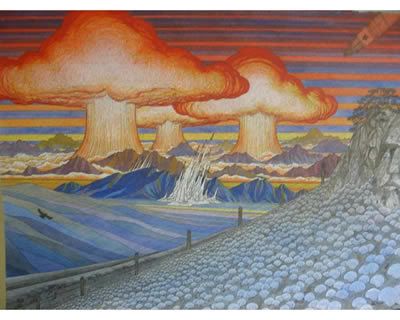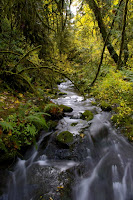"I do not see a delegation for the Four Footed. I see no seat for the Eagles. We forget and we consider ourselves superior. But we are after all a mere part of Creation. And we must consider to understand where we are. And we stand somewhere between the mountain and the Ant. Somewhere and only there as part and parcel of the Creation."
~ Chief Oren Lyons, Oneida in an address to the Non-Governmental Organizations of the United Nations, Geneva, Switzerland, 1977
In starting with this quote from Chief Oren Lyons I offer up my thanks for those first people of this land, for all that they have shared with me over the years, for opening my eyes to this land and providing another view of its history. Chief Lyons came to my house today. Not literally but, as is the way with these things, from a glimpsing out of the corner of my eye.
I am part of a group of folks, pretty much all volunteers, who scan the various print media around the globe for news items related to drug policy. My friend Beth, the gal in my previous post with pancreatic cancer, is one of this organization's many dedicated volunteers. I've been a volunteer with this group for almost a decade. We have, collectively, amassed an online archive of drug policy related newspaper and magazine articles that now approaches almost 200,000 articles. (the group is the Media Awareness Project and our archive is here. Part of my pride in involvement with this project is that the government tried to do something similar and in 2 years managed to compile only about 800 articles... says a whole lot about what great work folks motivated by something other than money can accomplish, especially when compared to folks whose only motivation comes from their job. If that sounds a bit like I'm thumbing my nose at the government... well... maybe I am... maybe I'm not...)
I haven't mentioned this bit of my activist life here before because I know how people can get when discussing politics and I don't want to bog down my efforts here in the blog on a topic I spend so much energy on elsewwweb.
 But it was in checking out an article I had seen my friend Mike Jones had posted from the Taos News that I noticed this little blurb about a YouTube video w/ Chief Lyons. The video is a short interview about the September, 2007 passage by the United Nations of the UN Declaration of Indigenous Rights. Not having heard about this Declaration showed me a couple of things. First, the news media doesn't give a whole lot of coverage to indigenous issues (which I knew)... and second, that I haven't been paying enough attention to an issue I hold with high regard. I mean my encounter with North American tribal folks literally changed my life, a change I view as one very much for the better.
But it was in checking out an article I had seen my friend Mike Jones had posted from the Taos News that I noticed this little blurb about a YouTube video w/ Chief Lyons. The video is a short interview about the September, 2007 passage by the United Nations of the UN Declaration of Indigenous Rights. Not having heard about this Declaration showed me a couple of things. First, the news media doesn't give a whole lot of coverage to indigenous issues (which I knew)... and second, that I haven't been paying enough attention to an issue I hold with high regard. I mean my encounter with North American tribal folks literally changed my life, a change I view as one very much for the better.This Declaration passed by a vote of 143 nations for and 4 against (with 11 abstentions). The four nations voting against were Australia, Canada, New Zealand and the United States. Those 4 nations have very tenuous relations with their indigenous populations. Australia with the aborigines, Canada and the U.S. with a host of tribes and New Zealand with the Maori. (update: Colombia was one of the abstentions, Colombian Government Declares Indigenous Reservations Targets for Fumigations) It was in learning about US history from the native perspective that I learned the word abrogate. A word, by the way, that I think should be better known, especially among those who have or are working towards reaching agreements with the US government... abrogate, as in "we abrogate our treaties":
Main Entry: ab·ro·gate
Pronunciation: \ˈa-brə-ˌgāt\
Function: transitive verb
Latin abrogatus, past participle of abrogare, from ab- + rogare to ask, propose a law
Date: 1526
1 : to abolish by authoritative action : annul
2 : to treat as nonexistent
synonyms see nullify
Whether this Declaration will have much effect on the problems native people are having around the globe or not I don't know, but I do know that Chief Lyons and others have been petitioning the UN for decades. Indigenous issues are many, their tribulations not insignificant and often a matter of life and death. Whether in South and Central America where logging, mining and cocaine production threatens their remote homelands or on any other continent on the planet, indigenous people and their plight remains hidden behind curtains of invisibility... out of sight, out of mind...
And because the year 2007 is just about gone I'd like to honor a couple of native elders who passed away this year.
 Floyd "Red Crow" Westerman passed over this December:
Floyd "Red Crow" Westerman passed over this December:Floyd 'Red Crow' Westerman passes... many of you probably would recognize Floyd Westerman from his role as Ten Bears, the elder medicine man in the the Kevin Costner classic film Dances With Wolves (a role that Grampa Semu also auditioned for). His acting bio is an amazing list, I know you'll find something here that you remember him from.
 Also this year we lost a wonderful elder and activist in Corbin Harney. Corbin died of cancer on July 10, 2007. He was a tireless teacher and very involved in Nevada with both land and tribal issues and with the anti-nuclear weapons movement. I met him once when I first moved to Eugene at a pot-luck at the U of O Longhouse.
Also this year we lost a wonderful elder and activist in Corbin Harney. Corbin died of cancer on July 10, 2007. He was a tireless teacher and very involved in Nevada with both land and tribal issues and with the anti-nuclear weapons movement. I met him once when I first moved to Eugene at a pot-luck at the U of O Longhouse. "We are one people. We cannot separate ourselves now. There are many good things to be done for our people and for the world. It is important to let things be good. And it is important to teach the younger generation so that things are not lost."
~ Corbin Harney
-----
kwel mehk, ih'luktay, kay sh'nuk sh'mah... ("thank you, my teachers, until we meet again...")
-----
There is so much more I have to say about indigenous folks, about my relations with them, their value to this modern and highly mad world, but I will save that for another post. Here,
 in honor of all those whose work and humble dedication to the land and the people has affected me, is a piece of art by Jack Malotte, a Western Shoshone artist whose work I first saw back in the day when I "discovered" the Western Shoshone Defense Project from reading the publication Native Self-Sufficiency, published by the late Daniel Bomberry. NSS and the fine Akwesasne Notes were important sources for expanding my native consciousness. I believe we all are native people (how could it be otherwise unless you are from another planet or dimension?), just that some of us are farther removed from our place on the land...
in honor of all those whose work and humble dedication to the land and the people has affected me, is a piece of art by Jack Malotte, a Western Shoshone artist whose work I first saw back in the day when I "discovered" the Western Shoshone Defense Project from reading the publication Native Self-Sufficiency, published by the late Daniel Bomberry. NSS and the fine Akwesasne Notes were important sources for expanding my native consciousness. I believe we all are native people (how could it be otherwise unless you are from another planet or dimension?), just that some of us are farther removed from our place on the land... 



















































